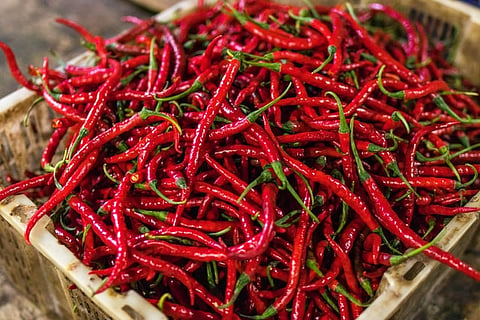
- Home
- EventsEvents
- Product Launches
- CategoriesCategories
- Advertise
- Opinion

Photo - Artem Beliaikin on Unsplash
The programme will ensure traceability of seven key spices - Chilli, Turmeric, Coriander, Cumin, Aniseed, Fenugreek, Nutmeg
Already positively impacted 1300 spice farmers across 7 states
Spices and herbs have the power to transform any dish into a tasty meal and give life to even the simplest preparations. Spices are essential to the Nestlé product portfolio and are used in many products, especially MAGGI. To help improve the economic stability of the spice farmers, Nestlé MAGGI has implemented a Sustainable Sourcing Programme for spices. Built on the pillars of traceability and responsible sourcing, the programme aims to ensure transparency on origins and progressively deliver positive impacts for the farmer communities, the environment and the business within its spices supply chain. The key areas of intervention of the MAGGI Spice plan are: ensuring good soil health, reduction in water wastage, no pesticide residues, the economics of cultivation, and biodiversity enhancements through the spice farms.
Commenting on the thought behind this programme, Suresh Narayanan, chairman and managing director, Nestlé India, said, “Spices are important for India, for Indians and hence for the MAGGI portfolio. At Nestlé India, we have always aimed to create value for our stakeholders, especially for the communities in which we operate. The programme is built on three aspects: planet, people and profits (for farmers). Through this, we wish to contribute to improving the livelihood of spice farmers by introducing them to the best farming practices that are sustainable and will help them grow the best produce while ensuring safe living and working conditions for them.”
The first pillar focuses on traceability of seven spices – Chilli, Turmeric, Coriander, Cumin, Aniseed, Fenugreek, Nutmeg – used in MAGGI products. Food traceability in the spice food chain is important to establish that the spices are free from harmful pesticides, additives, and climate change effects. The project already touches the lives of about 1300 farmers, spread across 39 villages and 7 states including Andhra Pradesh, Telangana, Karnataka, Tamil Nadu, Kerala, Rajasthan and Gujarat in 2020, and this is expected to increase by about 15% by the end of 2022. The second pillar of responsible sourcing has been tailored to address four areas: ensure resilient livelihoods, safe living and working conditions for farmers, maintaining biodiverse and environmentally sustainable farms.
"Our partnerships and the trust we have built up over the years with Spice farmers give Nestle India the inspiration to look at emulating such endeavours in other agri-commodities as well where we have involvement."
Click HERE to subscribe to our FREE Weekly Newsletter
